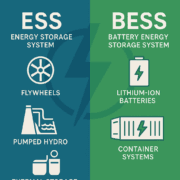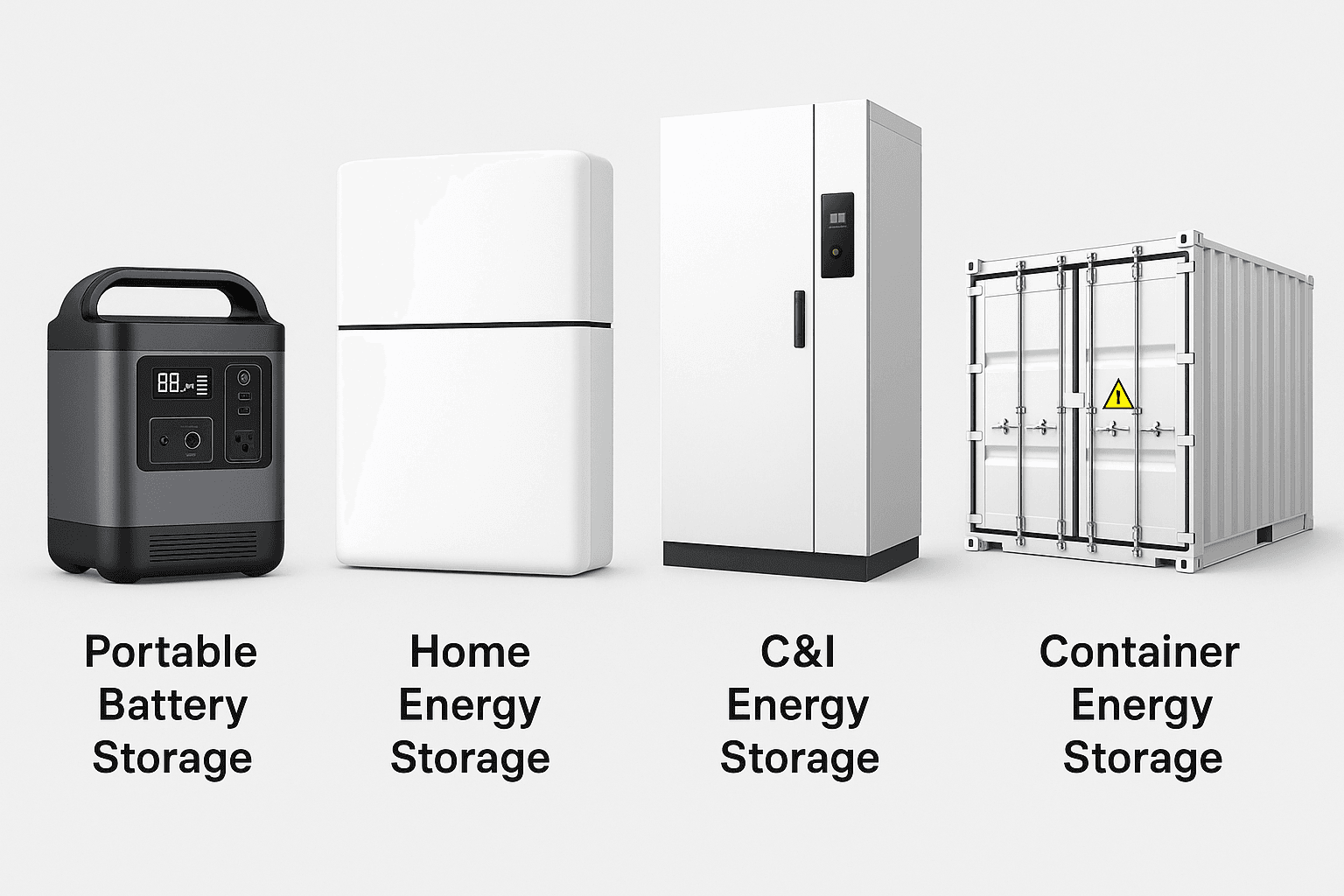🔋 What’s the Real Difference Between BESS and ESS?
What Is the Difference Between BESS and ESS?
When talking about renewable energy and power storage, the difference between BESS and ESS often confuses beginners. These two terms might seem similar, but they’re not the same. Understanding what each means is important if you’re dealing with solar systems, energy projects, or even electric vehicles.
Let’s break it down in simple words.
What Does ESS Mean?
ESS stands for Energy Storage System. It refers to any system that stores energy, not just electricity. This includes a wide range of technologies used to store energy in different forms — chemical, mechanical, thermal, or electrical.
Common Types of ESS:
- 🔋 Batteries
- 🌊 Pumped Hydro Storage
- 🌀 Compressed Air Storage
- 🌡️ Thermal Storage (like molten salt or ice)
In short, ESS is a general term for any system that can hold and release energy when needed.
What Is BESS?
BESS stands for Battery Energy Storage System. It is a type of ESS that stores electrical energy using batteries. BESS has become the most popular energy storage solution, especially with solar and wind projects.
A Typical BESS Includes:
- Battery cells or modules
- Battery Management System (BMS)
- Power Conversion System (PCS)
- Fire suppression & cooling
- Monitoring and safety features
The difference between BESS and ESS is that BESS is battery-specific, while ESS can refer to many other types of storage.
Why Is the Difference Between BESS and ESS Important?
Knowing the difference between BESS and ESS helps you:
✅ Choose the right technology
✅ Communicate clearly with vendors or partners
✅ Understand costs, installation, and maintenance needs
✅ Plan projects efficiently
If you are discussing a specific battery solution, say “BESS.”
If you are referring to general energy storage options, use “ESS.”
Common Questions About BESS vs ESS
❓ Is Every BESS Also an ESS?
Yes. Every Battery Energy Storage System (BESS) is a type of Energy Storage System (ESS). But not every ESS is a BESS. Some ESS use water, air, or heat instead of batteries.
❓ Which One Should I Choose for My Project?
If you are storing electricity from solar panels or wind turbines, BESS is usually the best option. It’s compact, scalable, and fast-responding.
If you are looking at long-term or large-scale energy storage, you might consider other ESS types like pumped hydro.
❓ Why Do People Use ESS Instead of Just Saying BESS?
Because ESS includes all types of storage, it’s often used in broad industry discussions. For example, when governments talk about energy policy or infrastructure planning, they use “ESS” to include all possibilities.
Real-World Example to Understand the Difference Between BESS and ESS
Imagine you’re building a smart home that uses solar panels.
- If you add a battery system to store extra solar power for night-time use, you’re installing a BESS.
- If your neighbor uses a water tank that powers a small turbine when needed, that’s also an ESS — but not a BESS.
Both are energy storage systems, but they’re powered differently.
Where You Will Hear “BESS” the Most
You’ll often hear “BESS” used in:
- 🏭 Industrial energy storage projects
- ☀️ Solar & wind power plants
- 🏘️ Residential solar systems with battery backup
- 🚗 EV charging stations
- ⚡ Grid stabilization systems
That’s because battery storage is now the fastest-growing part of the ESS world.
Summary: The Key Difference Between BESS and ESS
| Term | Full Form | What It Does | Storage Type |
|---|---|---|---|
| ESS | Energy Storage System | Stores energy (any form) | Batteries, water, air, heat, etc. |
| BESS | Battery Energy Storage System | Stores electrical energy | Only batteries (like lithium-ion) |
In short:
BESS is a type of ESS that uses batteries. ESS can include many other technologies.
Final Thoughts: BESS or ESS — Which One Is Right for You?
Understanding the difference between BESS and ESS is not just about knowing the terms — it’s about making better choices for your energy systems.
- Use ESS when discussing all storage technologies.
- Use BESS when you’re focused on battery-based energy storage.
👉 If you’re installing a battery backup, optimizing solar storage, or building a smart energy solution — you’re working with a BESS.
👉 If you’re exploring large infrastructure or hybrid solutions — you’re likely considering multiple ESS options.
In today’s energy-driven world, knowledge leads to smarter and safer decisions.



